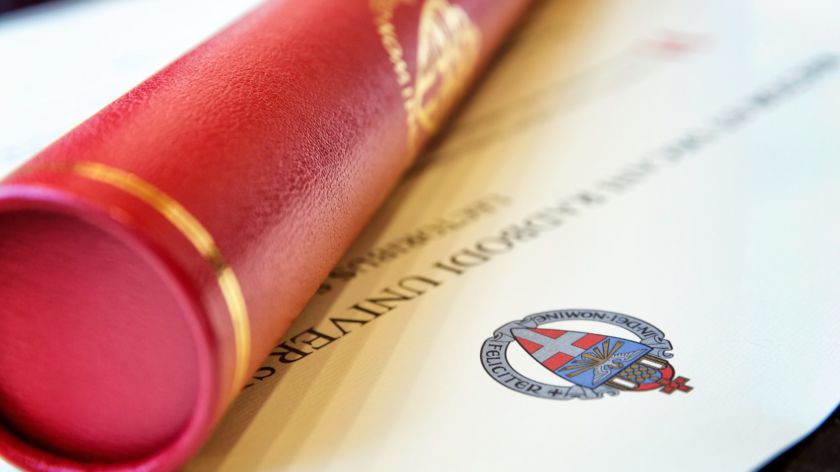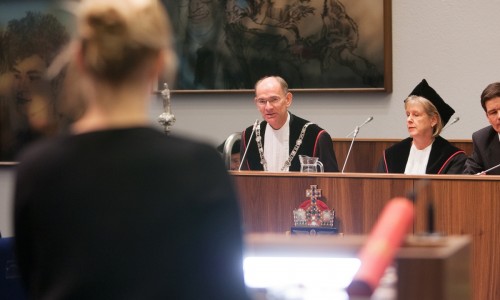‘Sufficient opportunities for associate professors to obtain promotion rights’
-
 Foto ter illustratie. Door Dick van Aalst
Foto ter illustratie. Door Dick van Aalst
Last month, mathematics lecturer Arne Smeets made a passionate plea for the granting of promotion rights to all university lecturers and associate professors. According to rector Han van Krieken's response, associate professors at Nijmegen already have sufficient opportunities to obtain the 'ius promovendi', or the right to supervise PhD candidates.
Universities differ in the way they grant the right to supervise doctoral candidates, as De Jonge Akademie demonstrated last month. At Amsterdam University, for example, it is possible for university lecturers (UDs) to obtain the right to supervise PhD candidates, whereas at Radboud University, that right is reserved for associate professors (UHDs) only.
Based on that comparison, Arne Smeets, mathematics lecturer and member of De Jonge Akademie, called on Radboud University to put a spurt on‘. According to Smeets, it would be a grand gesture to give all associate professors the ‘ius promovendi’.
‘Basically, you have to be a good researcher and supervisor to get promotion rights’
Rector Han van Krieken disagrees. ‘To echo Arne Smeets cycle racing metaphor, I would point out that the spring classics racing season has only just begun, and with excellent opportunities for our university’s associate professors.’
Realistic requirements
By granting the right to promote, Radboud University is meeting the criteria set by the Dutch association of universities and universities of applied sciences, the VSNU. Van Krieken feels those criteria are fair. ‘These criteria are relatively simple and transparent. Basically, you have to be a good researcher and a good supervisor to get promotion rights. Realistic requirements, in my opinion.’
17 associate professors
Since the introduction of the ‘ius promovendi’ in October 2017, 17 associate professors have been granted promotion rights. Seven of them work at Radboud university medical center and six at the Faculty of Science. Two associate professors at the Nijmegen School of Management may supervise, and one each in the Faculties of Arts and Social Sciences.
However, research by De Jonge Akademie shows that the VSNU guidelines are applied somewhat differently. After all, what makes you a good researcher? Van Krieken says, ‘For example, when you have compelling and well-quoted publications in the professional field, when you acquire prestigious grants or when you are in the process of being promoted to professor.’
And what about the second requirement, that of being a good supervisor: how do you meet that requirement? ‘For example, if an associate professor has already been a successful promoter abroad or has successfully co-promoted in the Netherlands several times.’
But as Van Krieken acknowledges, that leaves room for interpretation. ‘And I find that undesirable. We will no doubt be discussing that issue when the results are made known of the evaluation of Dutch universities recently started.’
Disappointment
Arne Smeets is disappointed that his plea has been left unanswered. ‘I had hoped that the rector would respond to the substance of my arguments. The preconditions set by the Council of Deans are excessively rigid.’
Smeets refers to the situations of three university lecturers and associate professors with prestigious ERC grants who at present are not eligible. ‘Promotion rights should be an obvious step for them – as for many others. I can only assume that these researchers will be disappointed to hear that they are apparently considered either not good researchers or good supervisors.’


Monica schreef op 11 april 2019 om 14:57
I think there’s some confusion in the article, perhaps due to translation, between ius promovendi, the right to SUPERVISE a PhD, and the right to obtain a doctoral diploma oneself.
Mathijs Noij schreef op 11 april 2019 om 16:01
You are right Monica – apologies! We changed the text.